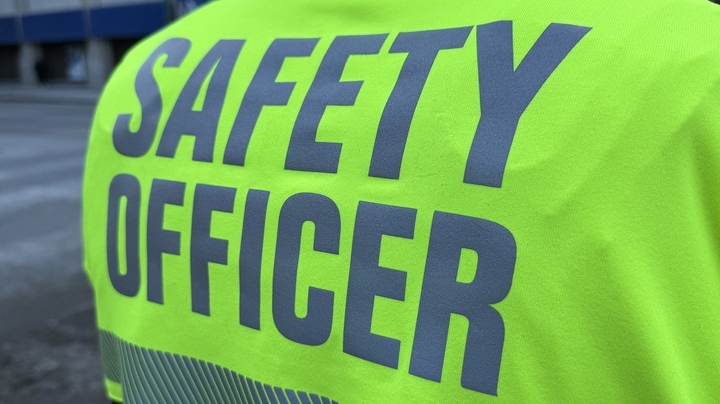‘Get somebody to a better place’: Community Safety Team leader reflects on program’s first six weeks

It’s been six weeks since the city’s Community Safety Team hit the pavement for the first time, and the team’s lead said it’s been an exciting and rewarding challenge.
“It couldn’t have rolled out better in my mind,” Bob Chrismas told CTV News Thursday. “The vision is there and [the team] just hit the streets running. They’ve been able to do a lot of good in the community and they’re already making a dent in my opinion.”
Chrismas is a former police officer with more than 30 years experience. He was hired to oversee and develop the Community Safety Team after the program was included in the city’s 2023 budget. It was initially a campaign promise by Mayor Scott Gillingham during the 2022 municipal election to address violence and safety concerns on Winnipeg Transit’s network.
After a month of training, the team of 21 officers and two supervisors officially began walking the streets and riding buses on Feb. 20.
According to the city, the team responded to 464 incidents between Feb. 20 and March 25, including well-being checks, substance use incidents, medical events, and disturbances.
Chrismas said at least two calls could be considered as potentially life-saving events.
“Over by Portage Place, [officers] found a person face-down in the snow, unresponsive and not breathing,” he explained. “They administered CPR and Narcan, and they brought that person back to life. They’ve been through that scenario twice, and it really justifies the whole program right there in my mind.”
The team’s training included first aid, conflict resolution, non-violent crisis intervention, and de-escalation techniques.
“We do a detailed briefing [each shift] and plan our day as a team,” Chrismas said. “And then debrief at the end of the day to talk about lessons learned, strategies, and problems that we might be able to tackle in the community.”
He said safety officers will check in on people camped out in bus shelters or continually riding a bus just to stay warm, and will offer safe rides to shelters like Siloam Mission or Main Street Project if needed.
“We hired people who have more of a social work orientation to dealing with people in a compassionate, trauma-informed way,” Chrismas said. “Oftentimes, they’re de-escalating a situation and trying to get somebody to a better place.”
However, team members are also trained in self-defence and use-of-force tactics. And, as sworn peace officers, have the power to detain and arrest people.
“Sometimes, there’s no talking a person down if they’re high on meth and escalated,” Chrismas explained. “We can try and de-escalate and these people are highly skilled at it, but sometimes force is required to detain somebody to keep them safe.”
In mid-March, two safety officers were assaulted while on the job. A man had been acting erratically on a bus around Graham Avenue and Main Street. The safety officers responded, but the man elbowed, kicked, and attempted to bite them during the event. They were able to detain him until police arrived.
“They were actually trying to save a guy who was running into traffic… and he could have been seriously injured or killed,” Chrismas said. “There’s risk involved in this type of enforcement and social work activity, but that’s what they signed up for.”
Chrismas said the team’s focus is to be a highly visible presence on downtown streets and bus routes, but said the team does travel outside of those areas as well. He acknowledges that the Community Safety Team cannot be everywhere at once and points out that during rush hour, there are hundreds of buses on the road.
“We have to be very focused, intelligence-led, and problem-oriented,” Chrismas said. “So we’re starting to pick some of the chronic problems where we’re seeing a recurring, say, draw on resources… and trying to focus on those.”
His hope is the Community Safety Team can help alleviate the strain on first responders and free up those services to handle emergencies.
Chrismas couldn’t touch on any plans to grow the Community Safety Team, but said they could cover a lot more ground with more officers.
The program is tabbed to cost around $2.5 million annually. The provincial government provided $5 million, and the city previously said funding would keep the program afloat until 2027.
“I think the impact we’re making with this small team should bear justification for potentially expanding the team in the future,” he said. “But in the meantime, we’re doing the best with what we’ve been given and I feel grateful for that.”
View original article here Source




